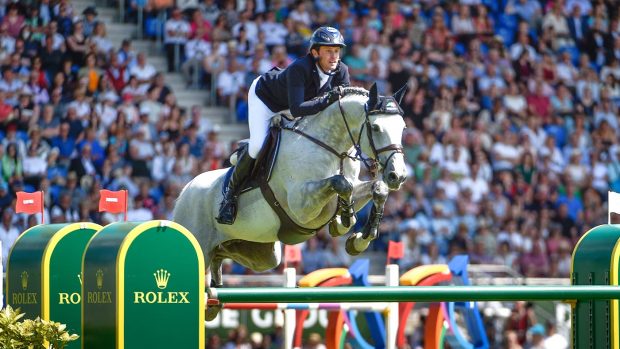Today marks exactly one year until the opening ceremony of the 2020 Olympic Games. With all eyes turning to Tokyo, we’ve put together a need-to-know guide for those planning a trip out to Japan for the Games.
Whether it’s where to stay, important points of etiquette or things you need to do while visiting the great metropolis, we are here to help.
Where to fly to
- The two main international airports are Tokyo Haneda and Tokyo Narita, and it’s crucial to consider which one to fly into for the Games — the two are 80km apart.
- Haneda airport is smaller but much closer to the city, while Narita is located in the Chiba prefecture, to the north-west of Tokyo.
- It is faster to reach the centre of Tokyo from Haneda, taking between 30 and 60 minutes via monorail, train or bus, and for the 2020 Games a new line connecting the airport directly to Tokyo Station in approximately 18 minutes is planned.
- You will find more choice of international and long-haul flights into Narita, although it will take around 90 minutes or more to reach Tokyo Station in the city centre.
Timetable
- The dressage is the first equestrian event to get underway in Tokyo, with the grand prix taking place on Saturday 25 and Sunday 26 July. The grand prix special on Tuesday 28 July will conclude the team competition, with the individual kür being held on Wednesday 29 July.
- Eventing gets underway on Friday 31 July, concluding on Monday 3 August, and the showjumping team competition begins the following day, concluding on Wednesday 5 August.
- The showjumping individual competition will take place on Friday 7 and Saturday 8 August.
- The opening ceremony will take place on Friday 24 July, and the closing ceremony on Sunday 9 August.
Need to know
- Tokyo, and the rest of Japan, is nine hours ahead of Greenwich Mean Time (GMT).
- The official language is Japanese. English is fairly widely understood in Tokyo, especially at Games sites.
- Currency used is Japanese yen. Be aware that Japan is much more cash-focused than the UK and most of Europe — make sure you carry enough cash while in the city as outside airports, major hotels and large western restaurants, cards are unlikely to be accepted.
- July and August is mid summer in Japan, and the weather is generally hot and extremely humid, with temperatures often reaching the mid-to-high 30s, and some heavy rain. Make like the locals and carry a small towel and a bottle of water during your visit.
Where to stay
- Tokyo is huge and sprawling, so consider your accommodation location carefully. The Equestrian Park is located to the west of the main city in an area called Setagaya. This area is more residential than central Tokyo, so depending on your plans and priorities you may prefer to book a more central hotel and use the incredibly efficient public transport system to get to the Equestrian Park.
- The Equestrian Park is a 15min walk from Sakura-shimmachi Station, directly linked to the central district of Shibuya by the Tōkyū Den-en-toshi train line. It is also a 20min walk from Kyodo Station, directly linked to the area of Shinjuku by the Odakyu train line.
- The opening and closing ceremonies take place at the Olympic Stadium, located in Shinjuku, and easily accessed on a range of train and subway lines.
- A PASMO card, which works like London’s Oyster cards, can be purchased from stations for use on trains and buses. Be aware that public transport in Japan does not run 24 hours – trains usually stop running just after midnight, though extensions are planned during the Games.
Etiquette essentials
Etiquette and appropriate manners are valued highly in Japan, even for visitors, and it’s worth remembering a few pointers for your trip:
- When meeting somebody, a polite bow is customary instead of shaking hands, though there is no need for visitors to worry too much about the details of this, such as the depth of the bow.
- It’s considered rude to eat, speak loudly, or speak on the phone while using public transport — be aware of your noise level and physical space while travelling.
- When making a purchase in a shop, don’t place cash directly into the hands of the staff — place it on the counter on in the tray provided for hem to pick up, and wait for them to do the same with your change.
- Tipping is not the norm in Japan, and attempting to tip will often cause confusion.
- A few phrases of Japanese will go a long way. Su-mi-ma-sen (‘excuse me’/ ‘sorry’), a-ri-ga-tō (‘thank you’), ei-go ga ha-na-se-mas ka (‘do you speak English?’), and wa-ka-ri-ma-sen (‘I don’t understand’) are useful to learn.
Don’t miss…
Outside the main equestrian events, make time to indulge in some incredible Japanese food. The sushi you will find everywhere in Tokyo will be unlike any sushi you have tried outside Japan — head to a kaitenzushi for cheap, fun conveyer belt sushi or make a reservation at a high-end sushi restaurant where you can watch the chefs prepare it.
Away from the horses…
While in Japan, head to a traditional festival, known as a matsuri, which happen all over Japan throughout the summer. Some feature fireworks, others traditional dancing and music, and at all of them you’ll find fantastic festival food and people wearing traditional yukata.
For all the latest equestrian news and reports, don’t miss Horse & Hound magazine, out every Thursday




